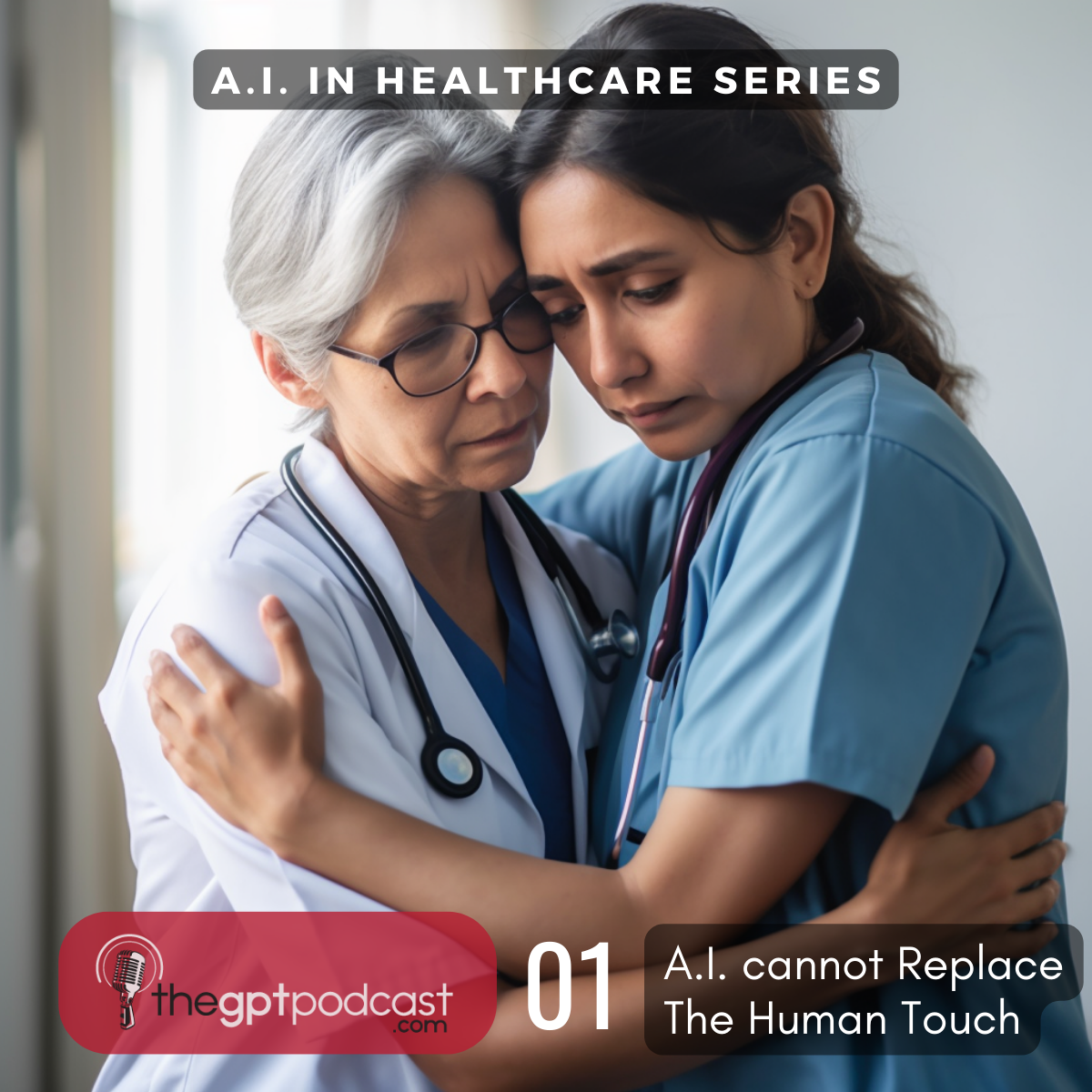AI in Healthcare: A Powerful Tool, But Not a Replacement for Human Clinicians
AI has the ability to analyze vast amounts of data, make predictions, and potentially improve the accuracy and efficacy of medical diagnoses and treatments. Its capabilities can be applied across various industries, including manufacturing, finance, retail, and transportation.

In this episode of TheGPTpodcast.com, AI in Healthcare Series, co-hosts Harvey and Brooks delved into the role of artificial intelligence (AI) in healthcare and the reasons why it cannot replace human clinicians. This engaging conversation highlights the potential of AI to revolutionize healthcare while emphasizing its limitations and the essential role of human clinicians in the industry.
AI's Potential in Healthcare
AI has the ability to analyze vast amounts of data, make predictions, and potentially improve the accuracy and efficacy of medical diagnoses and treatments. Its capabilities can be applied across various industries, including manufacturing, finance, retail, and transportation. However, in healthcare, AI systems face several limitations that prevent them from replacing human clinicians.
Top Limitations of AI in Healthcare
- Lack of empathy: AI cannot truly understand and empathize with patients' emotional and psychological needs, which is crucial for building trust and creating a therapeutic relationship.
- Bias in algorithms: AI systems can only be as objective as their training data. If the data is biased, the AI system will also be biased, leading to incorrect or discriminatory outcomes.
- Limited contextual understanding: AI has difficulty understanding the context in which medical decisions are made, such as patient-specific circumstances or cultural differences.
- Medical errors and accountability: AI systems can make errors, and holding them accountable is challenging. Human clinicians can be sued or held responsible for medical malpractice, but the same is not true for AI systems.
- Need for human interpretation: AI systems can provide recommendations but cannot make medical decisions independently. Human clinicians are needed to interpret the results and make the final decision.
- Limited creativity: AI systems can only perform tasks they have been specifically trained to do, lacking the creativity and intuition human clinicians use to make complex medical decisions.
The Future of AI in Healthcare
While AI systems continue to improve, it remains difficult to predict if they will ever be able to make medical decisions independently or match human creativity in complex medical decision-making. It is essential to recognize AI's limitations and use it to support, not replace, human clinicians who provide empathy, creativity, and personal touch in healthcare.
In conclusion, AI is an incredibly powerful tool with the potential to enhance the healthcare industry, but human clinicians remain indispensable for delivering quality medical care. The integration of AI should be done in a way that supports and augments human work, ultimately improving efficiency and productivity in healthcare.

